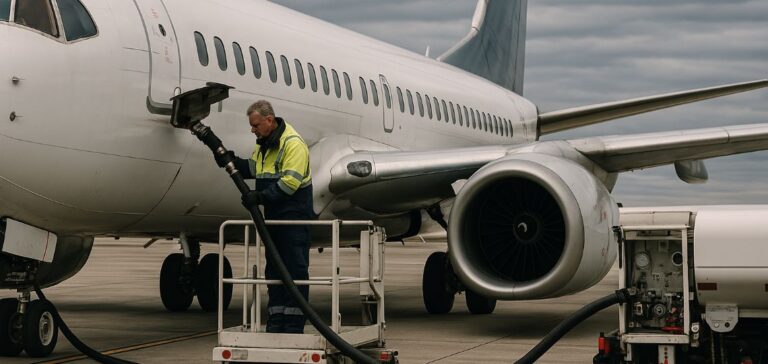Gevo, Inc., a U.S.-based producer of renewable fuels, has signed a purchase agreement with UK-based Future Energy Global covering the carbon abatement attributes generated by 10 million gallons of sustainable aviation fuel (SAF) per year. This agreement, based on the “Book and Claim” mechanism, allows Future Energy Global to acquire Scope 1 and Scope 3 emissions credits linked to the anticipated output of Gevo’s ATJ-60 plant, which is currently under development in Lake Preston, South Dakota.
Financing enabled by offtake commitments
The agreement is presented as a key element in securing financing for the ATJ-60 facility. The project has already obtained a conditional loan guarantee commitment of $1.63bn (€1.5bn) from the U.S. Department of Energy’s Loan Programs Office. This plant will use an alcohol-to-jet process to produce up to 60 million gallons of SAF annually. Gevo states that the expected production costs are similar to those of conventional jet fuel but with significantly reduced carbon emissions.
Future Energy Global, which is building a global market for SAF-linked carbon credits, targets a customer base of airlines, aircraft lessors, and corporates seeking to offset travel-related emissions. The “Book and Claim” mechanism allows these entities to purchase SAF carbon credits separately from the physical delivery of the fuel, facilitating access to SAF attributes in regions where it is not readily available.
Business model focused on credit liquidity
The Greenhouse Gas Protocol distinguishes between direct (Scope 1) and indirect (Scope 3) emissions. This model is essential in aviation, where a corporate client of a flight indirectly assumes a share of its emissions. By separating carbon attributes from the fuel itself, the “Book and Claim” method reduces logistical constraints while enhancing traceability and the commercialisation of carbon credits.
Natasha Mann, Chief Executive Officer and Co-Founder of Future Energy Global, stated that this partnership strengthens their portfolio of solutions for airlines and aircraft lessors. Patrick R. Gruber, Chief Executive Officer of Gevo, highlighted that developing this market could accelerate the scale-up of SAF production. FEG’s model attracts private capital by linking producers and buyers, thereby reinforcing the financial viability of SAF projects.
Gevo and FEG believe that rising demand for SAF credits creates a favourable context for production growth and that such agreements provide revenue certainty for suppliers while expanding compensation options for end users.






















